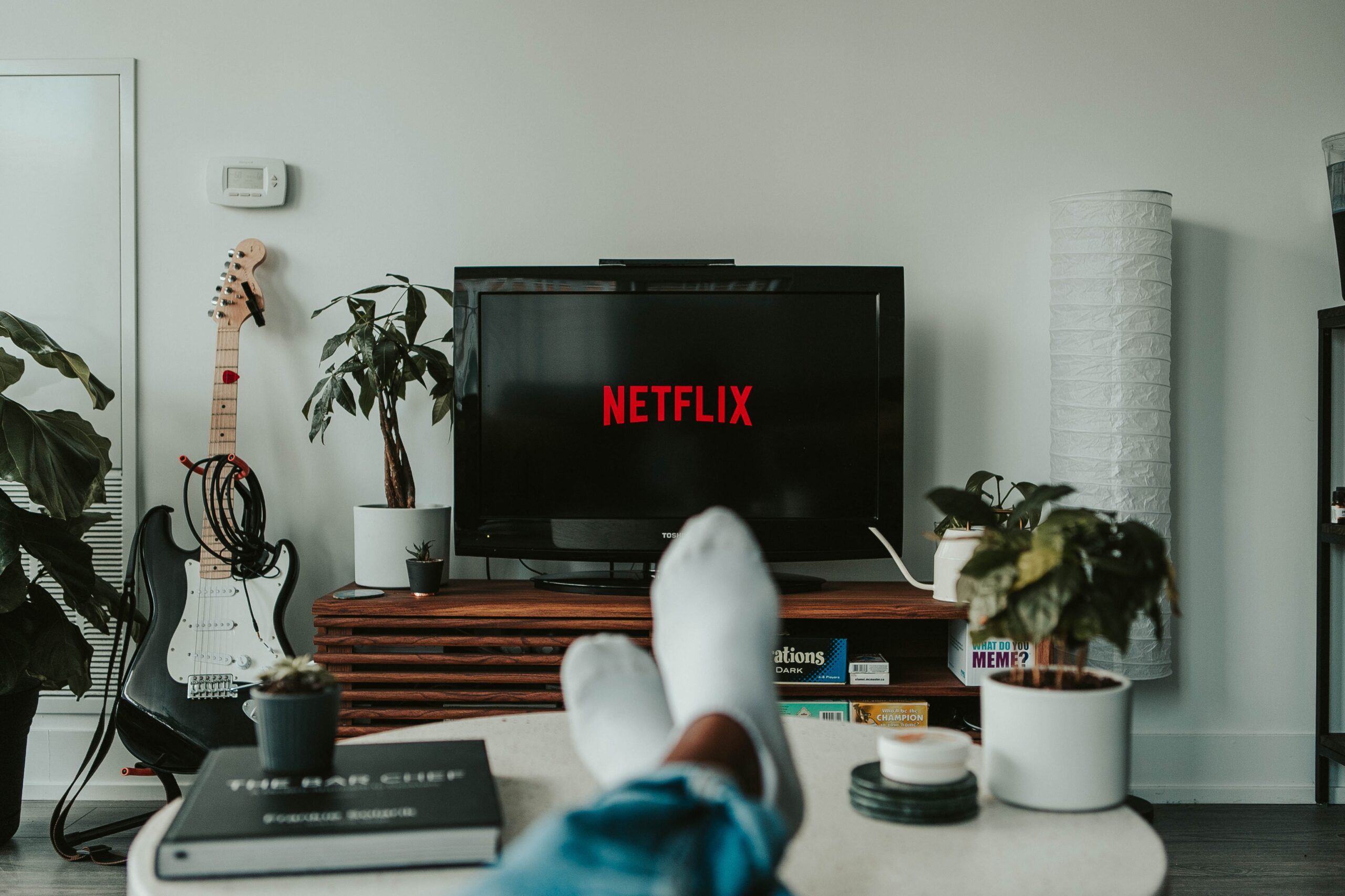In our hyperconnected world, where the pace of life is faster than ever, stress has become an unwanted constant companion for many. A staggering 77% of people regularly experience physical symptoms caused by stress, reflecting a global phenomenon that transcends cultures and professions.
But what exactly is the remedy to this widespread issue? The answer might be closer to home and more enjoyable than you think.
Stress can arise from various sources such as demanding jobs, strained relationships, financial burdens, or even just the overwhelming flow of information in our digital age.
It’s a response to life’s challenges, both big and small, that affects us all in different ways. From headaches and sleepless nights to anxiety and depression, the consequences of untreated stress are far-reaching.
While conventional methods like therapy and medication have their place, an often overlooked but essential aspect of stress relief is entertainment.
Whether it’s losing yourself in a gripping novel, dancing to your favorite song, or cheering for your sports team, entertainment is more than just a pastime. It’s a lifeline, a means of escape, and a gateway to relaxation.
In this comprehensive exploration, we’ll delve into why embracing entertainment is not just for leisure but a vital component in relieving stress and promoting relaxation.
The multifaceted world of entertainment, its historical context, scientific backing, and real-life applications await as we embark on a journey to understand how something as simple as having fun can be our greatest ally in the fight against stress.
Understanding Stress and Its Impacts
Stress is a natural response of the body and mind to any demand or challenge. It can be triggered by both positive events, such as a job promotion, and negative events, such as losing a loved one.
While stress is often perceived as harmful, a moderate amount can motivate and enhance performance. However, prolonged or excessive stress can lead to serious health problems.
Physical Impact
The toll that stress takes on the body is profound. Short-term stress can cause headaches, muscle tension, and difficulty sleeping. Long-term or chronic stress, on the other hand, can lead to more serious ailments like:
- Heart disease
- Obesity
- Digestive problems
The link between stress and physical health is well-established, yet often underestimated.
Emotional Impact
Beyond the physical realm, stress has a significant emotional effect. It can lead to feelings of:
- Frustration
- Anger
- Anxiety
- Depression
These emotions not only affect personal well-being but can also strain relationships with friends and family. Without proper management, the emotional impact of stress can become a vicious cycle, feeding into itself and escalating.
Societal Perspective
Stress doesn’t stop at the individual level. It permeates our workplaces, affecting productivity, creativity, and overall job satisfaction. In relationships, stress can create tensions and conflicts.
At a societal level, the economic burden of stress-related illnesses is immense. Understanding the pervasive nature of stress helps us recognize its collective impact and the need for comprehensive solutions.
The Role of Entertainment in Society
Entertainment is a broad term encompassing various activities that provide:
- Enjoyment
- Amusement
- Pleasure
From watching movies and playing video games to attending concerts and participating in sports, entertainment is an integral part of human culture. It serves to engage the mind, stimulate emotions, and often brings people together in shared experiences.
Historical Context
The role of entertainment has evolved dramatically over time. Ancient civilizations used theater, music, and games as means of:
- Communication
- Celebration
- Education
During the Renaissance, art, and literature flourished, reflecting societal values and human experience. Today, entertainment is a multifaceted industry, offering diverse options tailored to individual tastes and technological advancements.
Entertainment as a Cultural Phenomenon
Across cultures, entertainment takes various forms, reflecting unique:
- Traditions
- Values
- Social norms
The communal experience of watching a football match in Brazil, the spiritual connection in Indian classical dance, or the storytelling tradition of African drumming all demonstrate how entertainment is a cultural mirror.
It’s more than mere amusement; it’s a way to connect, reflect, and express identity.
Various Forms of Entertainment for Stress Relief
The world of entertainment is rich and diverse, offering countless avenues for joy, creativity, and relaxation. From the soothing sounds of music to the competitive thrill of sports, various forms of entertainment cater to different tastes and needs.
Music and Dance
Music has often been referred to as the universal language, transcending barriers and speaking directly to the soul. Whether it’s classical symphonies, jazz improvisations, or pop hits, music has the power to soothe and invigorate.
Dance, in its many forms, combines the rhythmic power of music with physical expression, offering an exhilarating way to release tension and feel alive.
Sports and Games
The competitive yet playful nature of sports and games can provide a vital outlet for stress. Whether playing a friendly match of soccer, engaging in a strategic chess game, or simply throwing a frisbee in the park, these activities encourage focus, cooperation, and joy.
They shift attention away from stressors, promoting physical fitness and social connections.
Reading and Writing
The world of literature offers an escape like no other. Losing oneself in a gripping novel or expressing thoughts through writing can be deeply therapeutic.
Reading stimulates imagination, enhances empathy, and provides a private retreat from the world’s hustle and bustle. Writing, whether journaling or crafting stories, allows introspection and creative expression.
Movies and TV Shows
Visual storytelling through movies and TV shows provides a window into different worlds, cultures, and emotions. The experts at moviehit24 recommend a heartwarming comedy, a thought-provoking documentary, or an action-packed thriller. These mediums offer a diverse palette of experiences. They entertain, inform, and often spark conversations and connections.
Art and Craft
Creating art or engaging in crafts is a hands-on way to find relaxation and personal fulfillment. Sketching, painting, knitting, or building something from scratch provides a tangible sense of accomplishment.
These activities require focus and creativity, acting as a meditative practice that draws attention away from stress and towards the joy of creation.
The Science Behind Entertainment and Relaxation
The allure of entertainment goes beyond mere enjoyment, touching the very core of our psychological well-being. Whether it’s a thrilling movie, an engaging video game, or a captivating book, entertainment offers a mental escape from daily pressures.
It provides a temporary respite from stress, allowing the mind to:
- Unwind
- Rejuvenate
- Foster creativity
Physical Benefits
Entertainment isn’t solely a mental endeavor; it has tangible physical benefits as well. Dancing to a favorite tune, playing a sport, or even enjoying a comedy show can:
- Lower blood pressure
- Reduce heart rate
- Relax muscles
These physiological responses are the body’s way of counteracting stress, leading to a feeling of relaxation and contentment.
The Connection with Hormones
Scientific studies have shown that engaging in entertaining activities triggers the release of positive hormones like:
- Endorphins
- Serotonin
- Dopamine
These “feel-good” chemicals play a crucial role in mood regulation and stress reduction. Laughing at a joke, enjoying a piece of music, or achieving a game’s goal can lead to a surge in these hormones, creating an uplifting effect that transcends the momentary pleasure.
Real-life Testimonials and Case Studies
Companies are increasingly recognizing the value of entertainment in the workplace. Google, for instance, has long embraced recreational spaces and activities to foster creativity and reduce employee stress. Team-building games, hobby clubs, and relaxed environments have been shown to enhance productivity and job satisfaction.
Entertainment isn’t merely recreational; it’s also therapeutic. Music therapy has been employed in hospitals to alleviate pain and anxiety. Art therapy is used to help individuals process trauma or emotional disorders. Even video games have found a place in rehabilitation centers to improve motor skills and cognitive functions.
Practical Tips for Incorporating Entertainment into Daily Life
Understanding the value of entertainment for relaxation is one thing, but integrating it into our daily lives can be a challenge in today’s fast-paced world. How do we make time for leisure without feeling guilty or overwhelmed?
Identify Your Preferences
The world of entertainment is vast, and finding what resonates with you is the first step. Whether it’s music, sports, reading, or any other form, understanding what you enjoy will make it a more effective stress reliever.
Create a Schedule
Incorporating entertainment into daily life doesn’t have to be overwhelming. Setting aside a specific time, even just 15 minutes a day for a leisure activity, can make a significant difference. Consistency can turn entertainment into a nourishing routine rather than a sporadic luxury.
Embrace Community
Joining clubs or groups that share your interests can enhance the entertainment experience. Connecting with others adds a social dimension, creating a sense of belonging and mutual enjoyment.
Use Technology Wisely
In our digital age, entertainment is often at our fingertips. Apps for reading, platforms for virtual games, or websites for art tutorials can be excellent tools. But remember to balance screen time with other forms, ensuring a holistic approach to relaxation.
Recognize the Value
Seeing entertainment as a valuable aspect of well-being rather than an indulgence helps in prioritizing it. Understanding that it’s not a waste of time but a vital part of mental and physical health reinforces its importance.
Potential Pitfalls and Misunderstandings
While entertainment offers many benefits for stress relief and relaxation, it’s not without potential challenges and misconceptions. How do we strike the right balance, and what are the common misunderstandings that might hinder our enjoyment?
Overindulgence
While entertainment is a valuable tool for relaxation, there can be too much of a good thing. Excessive engagement in leisure activities, especially those that are passive, may lead to procrastination or neglect of responsibilities. Finding the right balance is key.
Inappropriate Content Choices
Not all forms of entertainment are suitable for stress relief for every individual. Some might find certain movies, games, or books exacerbating stress rather than alleviating it. Understanding personal triggers and preferences is essential to make wise choices.
Screen Time Concerns
With the rise of digital entertainment, managing screen time is a legitimate concern. Too much time in front of screens can lead to eye strain, sleep disturbances, and other health issues. Integrating offline activities or using screen filters can mitigate these risks.
Misconceptions About Productivity
There may be societal pressures that view entertainment as unproductive or frivolous. This misunderstanding can hinder people from fully embracing leisure activities for relaxation. Recognizing the legitimate psychological and physiological benefits helps in overcoming these misconceptions.
When Entertainment Becomes an Addiction
Entertainment brings joy and relaxation, but like anything in life, it can be taken to an extreme. When does a healthy interest in entertainment cross the line into addiction, and what are the signs to look out for?
Identifying Addiction
Entertainment, in its many forms, can be a delightful escape, but like anything, it carries the risk of overuse and addiction. Entertainment addiction is marked by an obsessive need to consume certain entertainment forms, leading to neglect of responsibilities, relationships, and self-care. It’s not merely enjoying a hobby but a compulsion that interferes with daily life.
Signs and Symptoms
Some signs of entertainment addiction might include spending excessive time on entertainment activities to the detriment of work, education, or social commitments; withdrawal from friends and family; loss of interest in previously enjoyed activities; and persistent failure to control or reduce engagement with entertainment.
Understanding the Underlying Causes
Addiction often masks underlying issues such as stress, anxiety, or depression. When entertainment becomes the only coping mechanism, it may evolve into an unhealthy dependence. Understanding the root cause is crucial for addressing the problem effectively.
Seeking Professional Help
Entertainment addiction is a serious concern that may require professional intervention. Therapists specializing in addiction can provide support, tools, and strategies to regain control and find healthier ways to enjoy leisure activities.
Don’t Beat Yourself Up: Embrace Relaxation Today
Embracing entertainment as a means of stress relief and relaxation isn’t a novel concept, but its importance has never been more pronounced in our fast-paced, demanding world. From the soothing notes of a melody to the exhilaration of a game, the worlds of art, music, literature, sports, and media offer diverse pathways to unwind and reconnect with oneself.
This article has journeyed through the multifaceted nature of entertainment, shedding light on its historical and cultural significance, delving into the science behind its therapeutic effects, and offering practical insights for integration into daily life. Real-life testimonials have shown that this isn’t mere theory but a lived reality for many.
However, as with any powerful tool, responsible engagement is key. Being mindful of personal preferences, avoiding overindulgence, and recognizing the legitimate value of entertainment are all essential in harnessing its benefits effectively.
In a world where stress is often an unwelcome companion, entertainment stands as a beacon of joy, creativity, and connection. It’s more than a distraction; it’s a vital component of human well-being, a celebration of life in all its complexity and beauty. By recognizing and embracing this, we not only enrich our individual lives but also foster a more compassionate and joyful society.


